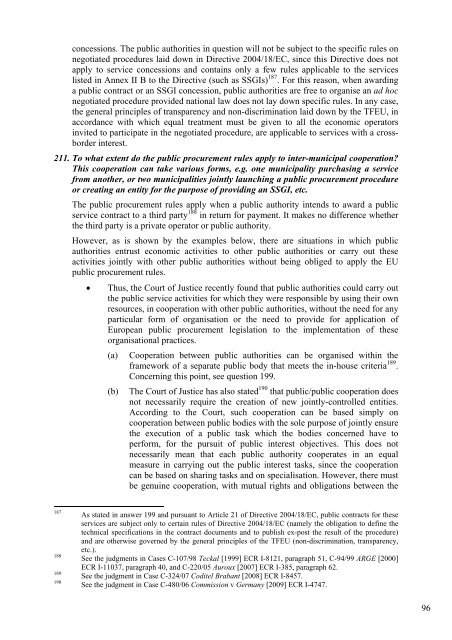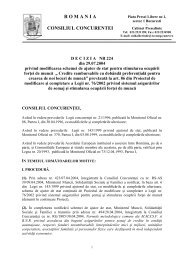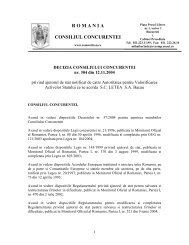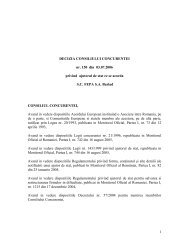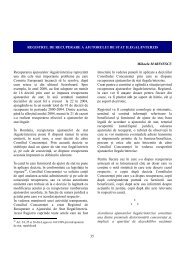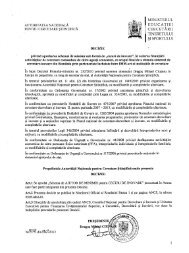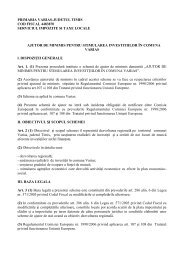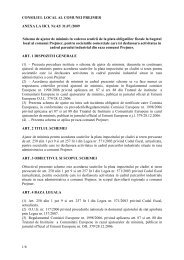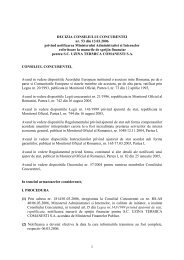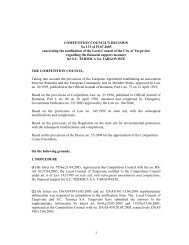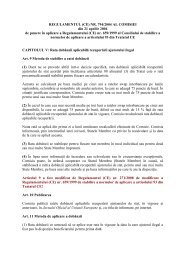Brussels, 15.2.2013 SWD(2013) 53 final COMMISSION STAFF ...
Brussels, 15.2.2013 SWD(2013) 53 final COMMISSION STAFF ...
Brussels, 15.2.2013 SWD(2013) 53 final COMMISSION STAFF ...
You also want an ePaper? Increase the reach of your titles
YUMPU automatically turns print PDFs into web optimized ePapers that Google loves.
concessions. The public authorities in question will not be subject to the specific rules onnegotiated procedures laid down in Directive 2004/18/EC, since this Directive does notapply to service concessions and contains only a few rules applicable to the serviceslisted in Annex II B to the Directive (such as SSGIs) 187 . For this reason, when awardinga public contract or an SSGI concession, public authorities are free to organise an ad hocnegotiated procedure provided national law does not lay down specific rules. In any case,the general principles of transparency and non-discrimination laid down by the TFEU, inaccordance with which equal treatment must be given to all the economic operatorsinvited to participate in the negotiated procedure, are applicable to services with a crossborderinterest.211. To what extent do the public procurement rules apply to inter-municipal cooperation?This cooperation can take various forms, e.g. one municipality purchasing a servicefrom another, or two municipalities jointly launching a public procurement procedureor creating an entity for the purpose of providing an SSGI, etc.The public procurement rules apply when a public authority intends to award a publicservice contract to a third party 188 in return for payment. It makes no difference whetherthe third party is a private operator or public authority.However, as is shown by the examples below, there are situations in which publicauthorities entrust economic activities to other public authorities or carry out theseactivities jointly with other public authorities without being obliged to apply the EUpublic procurement rules.• Thus, the Court of Justice recently found that public authorities could carry outthe public service activities for which they were responsible by using their ownresources, in cooperation with other public authorities, without the need for anyparticular form of organisation or the need to provide for application ofEuropean public procurement legislation to the implementation of theseorganisational practices.(a) Cooperation between public authorities can be organised within theframework of a separate public body that meets the in-house criteria 189 .Concerning this point, see question 199.(b)The Court of Justice has also stated 190 that public/public cooperation doesnot necessarily require the creation of new jointly-controlled entities.According to the Court, such cooperation can be based simply oncooperation between public bodies with the sole purpose of jointly ensurethe execution of a public task which the bodies concerned have toperform, for the pursuit of public interest objectives. This does notnecessarily mean that each public authority cooperates in an equalmeasure in carrying out the public interest tasks, since the cooperationcan be based on sharing tasks and on specialisation. However, there mustbe genuine cooperation, with mutual rights and obligations between the187188189190As stated in answer 199 and pursuant to Article 21 of Directive 2004/18/EC, public contracts for theseservices are subject only to certain rules of Directive 2004/18/EC (namely the obligation to define thetechnical specifications in the contract documents and to publish ex-post the result of the procedure)and are otherwise governed by the general principles of the TFEU (non-discrimination, transparency,etc.).See the judgments in Cases C-107/98 Teckal [1999] ECR I-8121, paragraph 51, C-94/99 ARGE [2000]ECR I-11037, paragraph 40, and C-220/05 Auroux [2007] ECR I-385, paragraph 62.See the judgment in Case C-324/07 Coditel Brabant [2008] ECR I-8457.See the judgment in Case C-480/06 Commission v Germany [2009] ECR I-4747.96


